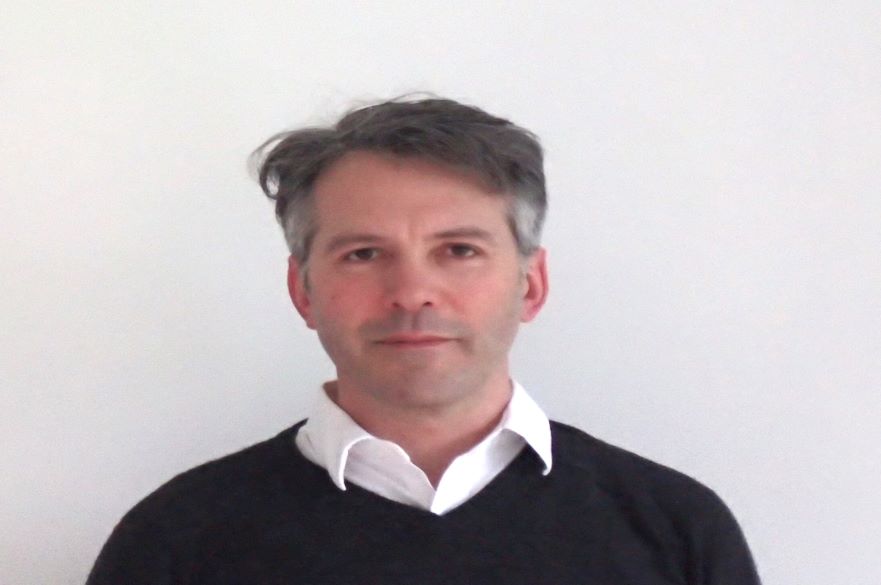Role
Carlos Abrahams is a part-time Lecturer on the BSc Environmental Biology course. He is Module Leader for Regulating Environmental Information and also teaches on the modules Terrestrial Ecosystems, Freshwater Ecosystems, Atmospheric Pollution and Practical Conservation.
Career overview
Carlos works part-time at NTU, alongside his other job as Technical Director in an ecological consultancy – Baker Consultants. He has over twenty-five years experience as an ecologist and environmental manager, including work with public and private sector clients on a diverse range of high profile projects. This has involved ecological survey, environmental impact assessment, design and implementation of mitigation measures and practical site management. He has expertise in the survey, evaluation and management of rare and protected species, habitats and sites and holds Natural England licences for surveying great crested newts, natterjack toads and bats. He has considerable experience in the delivery of ecological services to large engineering projects such as road and rail infrastructure, flood defence schemes, and industrial estates. This has included the production of Environmental Statements for quarries, pipelines, wind energy, residential, commercial and leisure developments.
Research areas
Carlos’ key areas of research are in bioacoustics and wetland ecology. He has carried out research on habitat selection by wetland invertebrates, the landscape ecology of amphibian communities, the vegetation communities of reservoir drawdown zones, and the use of bioacoustics for pond and bird population monitoring. This theoretical base has been closely allied with practical implementation, producing and implementing conservation management plans for a range of sites, such as the regionally important Witches Oak Waters gravel pit restoration scheme. Over recent years he has been increasingly involved in raising awareness and providing training for bioacoustics, including a number of conference presentations and training courses/webinars for CIEEM, BES, UKAN, IoA, Wildlabs, PR Statistics and Wildlife Acoustics.
Carlos is a member of the IUCN SSC Freshwater Plant Specialist Group. He is also a peer reviewer for Water and Environment Journal, Aquatic Ecology, Lakes and Reservoirs: Research and Management and Frontiers in Environmental Science and Engineering.
External activity
Carlos is a member of the Chartered Institute of Ecology and Environmental Management (serving as vice-chair of the Training Education and Career Development Committee), the British Ecological Society, and is a Commission Member - IUCN SSC Freshwater Plant Specialist Group. He is also an external examiner for Master's level courses at Newcastle University and Bristol University.
Publications
* Abrahams, C. (2006) Sustainable shorelines: the management and revegetation of drawdown zones. Journal of Practical Ecology and Conservation 6(1): 37-51
* Abrahams, C. (2007) Lakes, water levels and climate change. ECOS 28(3/4): 40-45
* Abrahams, C. (2008) All ebb and flow – droughts, floods and lakes in the future landscape. Journal of Practical Ecology and Conservation 7(1): 9-17
* Abrahams, C. (2008) Climate change and lakeshore conservation: a model and review of management techniques. Hydrobiologia 613:33–43
* Abrahams, C. (2013) Chapters on the Dee Estuary, Humber Estuary and Kielder Forest in Howarth, R.W. (Ed) Biomes and Ecosystems: An Encyclopedia, Salem Press
* Contributing author to Jones, I. (Ed) (2013) The Impact of Extreme Events on Freshwater Ecosystems. British Ecological Society
* Arntzen, J.W., Abrahams, C., Meilink, W.R.M., Iosif, R. & Zuiderwijk, A. (2017) Amphibian decline, pond loss and reduced population connectivity under agricultural intensification over a 38 year period. Biodiversity and Conservation 26:1411-1430
* Abrahams, C. & Denny, M.J.H (2018) A first test of unattended, acoustic recorders for monitoring Capercaillie Tetrao urogallus lekking activity. Bird Study 65(2): 197-207
* Abrahams, C. & Nash, D.J. (2018) Do we need more evidence-based survey guidance? In Practice 100: 53-56
* Abrahams, C. (2018) Bird Bioacoustic Surveys – developing a standard protocol. In Practice 102: 20-23
* Abrahams, C. (2019). Ecological Survey Requirements: Conflicts Between Local Validation Checklists and National Guidance. In Practice 103: 10-12
* Abrahams, C. (2019) Comparison between lek counts and bioacoustic recording for monitoring Western Capercaillie (Tetrao urogallus L.). Journal of Ornithology 160(3): 685-697
* Abrahams, C., & Geary, M. (2020). Combining bioacoustics and occupancy modelling for improved monitoring of rare breeding bird populations. Ecological Indicators, 112.
* Docker, S., Lowe, A. & Abrahams, C. (2020) Identification of different song types in the European Nightjar Caprimulgus europaeus. Bird Study DOI: 10.1080/00063657.2020.1780414
* Abrahams, C, Desjonquères, C, Greenhalgh, J. (2021) Pond Acoustic Sampling Scheme: A draft protocol for rapid acoustic data collection in small waterbodies. Ecology and Evolution. 00: 1–12. https://doi.org/10.1002/ece3.7585
Press expertise
- Ecology
- Freshwater ecology
- Impact of climate change upon the hydrology of lakes, ponds and wetlands – and knock-on effects of ecological functions, ecosystem services and nature conservation
- Environmental management
- Environmental impact of developments such as large housing schemes, power stations and wind farms
